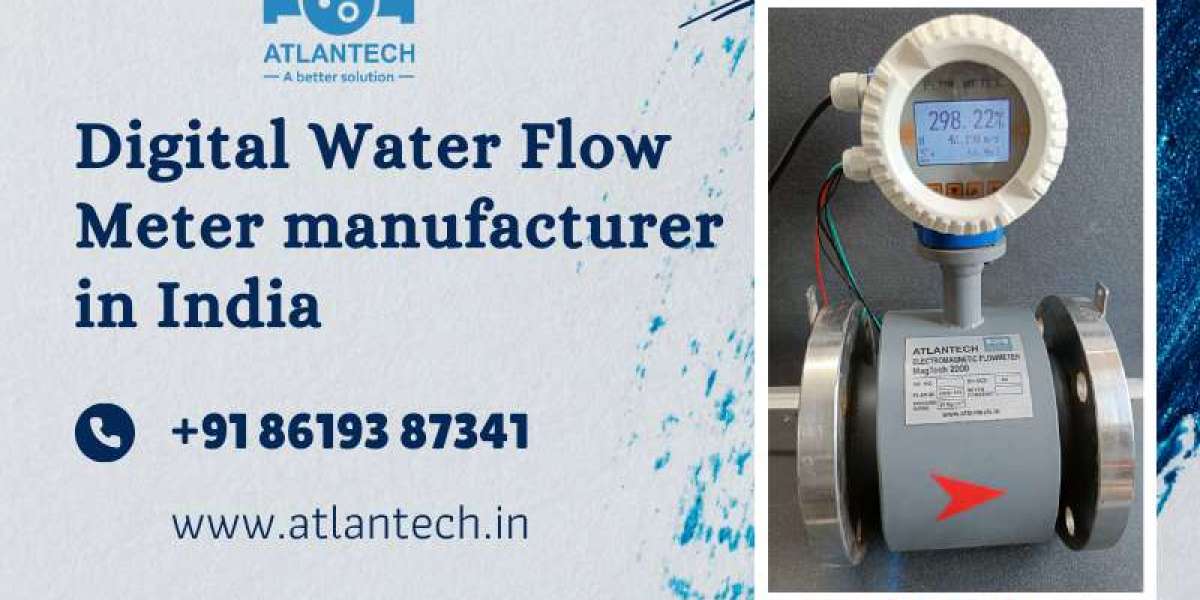
Flow meters are essential tools in many industries, used to measure the volume or mass of a fluid moving through a pipeline. With the growing demand for more precise, reliable, and real-time data, digital flow meters have become increasingly popular. These advanced instruments offer enhanced accuracy, easy integration with digital systems, and lower maintenance needs compared to traditional mechanical meters.
This blog will provide a clear overview of digital flow meters, how they work, their types, benefits, and where they are used.
What is a Digital Flow Meter?
A digital flow meter is a device that measures the flow of liquids or gases and displays the results in a digital format. It uses sensors and electronic components to monitor flow rates with high precision and often includes features such as:
- Digital displays for real-time monitoring
- Remote data transmission
- Integration with SCADA, PLC, or IoT systems
- Alarm settings and data logging
These meters are commonly used in water treatment plants, oil & gas industries, chemical processing, and HVAC systems, among others.
Types of Digital Flow Meters
There are several types of digital flow meters, each suited for different applications based on the type of fluid and required accuracy:
1. Electromagnetic Flow Meters
Ideal for conductive liquids like water, slurries, and chemicals. These meters use electromagnetic fields to measure flow without any moving parts.
2. Ultrasonic Flow Meters
Use high-frequency sound waves to measure the velocity of the fluid. They are perfect for both clean and dirty liquids and work well in large pipes.
3. Turbine Flow Meters
Contain a spinning rotor that turns with the flow. The rotational speed is proportional to the flow rate. These are used in clean, low-viscosity liquids.
4. Coriolis Flow Meters
Measure mass flow directly using the Coriolis effect. Known for their high accuracy and are used in chemical and pharmaceutical industries.
5. Thermal Mass Flow Meters
Used mainly for gases, these measure flow by detecting heat loss from a heated sensor placed in the flow path.
Benefits of Using Digital Flow Meters
- ✅ High Accuracy: Digital sensors reduce human error and provide exact measurements.
- ✅ Easy to Read: Digital displays are user-friendly and easy to interpret.
- ✅ Remote Monitoring: Many models support wireless or wired connectivity for remote data access.
- ✅ Low Maintenance: With fewer moving parts, these meters are durable and require minimal upkeep.
- ✅ Data Storage: Many meters come with memory functions for storing historical data for analysis.
Applications of Digital Flow Meters
Digital flow meters are used across various industries, including:
- Water & Wastewater Management: For monitoring distribution and treatment systems.
- Oil & Gas: For controlling the flow of fuels and gases.
- Food & Beverage: Ensures precise ingredient mixing and quality control.
- Pharmaceutical: For high-accuracy dosage and mixing applications.
- HVAC Systems: For measuring water and air flows for better energy efficiency.
Conclusion
Digital flow meters have revolutionized how industries measure and manage fluids. Their combination of accuracy, reliability, and advanced features makes them an essential part of modern process control systems. Whether you are managing water resources, producing chemicals, or ensuring clean air flow, a digital flow meter can greatly improve your operational efficiency.
If you’re searching for reliable Digital flow meter manufacturers in India, it’s important to choose a company with proven expertise, quality products, and excellent service support to match your industry’s specific needs.
Looking for the right digital flow meter for your application?
Connect with a trusted supplier today and discover how digital technology can enhance your flow measurement systems.



